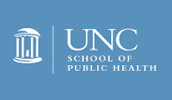Abstract
Results obtained in randomized trials may not generalize to specific target populations. In a randomized trial, the treatment assignment mechanism is known, but assuming participants are a random sample from the target population is often dubious. Lack of generalizability can occur when the distribution of treatment effect modifiers in trial participants differs from the distribution in the target population. We consider an inverse probability of sampling weighted (IPSW) estimator for generalizing trial results to a user-specified target population that differs in important clinical or demographic characteristics from the randomized trial. The IPSW estimator is shown to be consistent and asymptotically normal assuming a model for the sampling score (i.e., the probability of participating in the trial) is correctly specified. Expressions for the asymptotic variance and a consistent sandwich-type estimator of the variance are derived. Simulation results comparing the IPSW estimator and a previously proposed stratified estimator show that the estimators perform similarly when the sampling score model includes a binary covariate. However, with a continuous covariate in the sampling score model, the IPSW estimator is less biased and the corresponding Wald confidence interval has better coverage. The IPSW estimator is employed to generalize results from two randomized trials of HIV treatment conducted by the United States (US) National Institutes of Health AIDS Clinical Trials Group to all people currently living with HIV in the US.
Disciplines
Biostatistics | Epidemiology | Immune System Diseases
Suggested Citation
Buchanan, Ashley L.; Hudgens, Michael G.; Cole, Stephen R.; Mollan, Katie; Sax, Paul E.; Daar, Eric; Adimora, Adaora A.; Eron, Joseph; and Mugavero, Michael, "Generalizing Evidence from Randomized Trials using Inverse Probability of Sampling Weights" (September 2015). The University of North Carolina at Chapel Hill Department of Biostatistics Technical Report Series. Working Paper 45.
http://biostats.bepress.com/uncbiostat/art45

